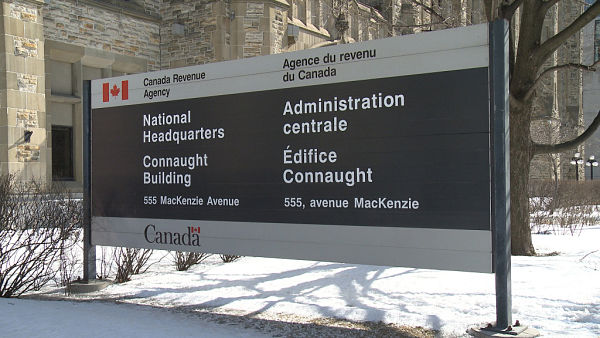The Prime Minister and Finance Minister announced yesterday a number of measures designed to provide relief to individuals and small business during this challenging time. I have attempted to summarize these announcements in a way that is practical and applicable.
Measures impacting your income tax obligations
The announcement falls into two broad categories; filing obligations and payment obligations, and impact personal taxes, Trust returns and corporate taxes differently.
Personal Income Tax
Filing
The filing deadline for personal tax returns has been extended to June 1, 2020.
I would encourage our clients, irrespective of this extension, not to delay providing us with the documents to prepare your tax returns. In particular, if you are expecting a refund or eligible to receive benefits under the GSTC or Canada Child Benefit, it will be to your advantage to file as early as possible.
Payment
In the event there is a balance owing, you have until September 1 to make the payment, and no interest or penalties will be applied.
Trust Income Tax
Filing
The filing deadline for Trust returns has been extended to May 1, 2020 from March 30.
Payment
As with personal tax returns, there is an extension to make the payment of any balance owing until September 1 and no interest or penalties will be applied.
Corporate Income Tax
Filing
There is no extension to the filing dates that apply to corporations. The general filing deadline for Corporations is six months following the year end of the corporation.
Payment
The application of the relief measure in terms of the payment of corporate tax is somewhat more complicated than for personal tax. The information released by the Department states that the payment of any income tax amounts that become owing on or after today (March 18, 2020) can be deferred until August 31 and no interest or penalties will apply. We believe that the phrase “become owing” refers to the “balance due date” which is generally two months following the taxation year end, but can, in certain circumstances be extended to three months. As a result, two corporations, each with a December 31 year end would be treated differently in terms of the relief. There would be no relief for the corporation with a balance due date of February 29, but the corporation with a balance due date of March 31 would be able to defer the tax payment to September 1. We are hoping to see additional guidance to clarify the language and will keep you informed.
Instalments
The deferral until August 31, 2020 also applies to instalment payments that become due between March 18 and August 31.
In other words, for individuals you will not be required to make your June 15 instalment payment.
For corporations, there are no monthly instalments required between March 18 and August 31.
No interest or penalties will accumulate on these amounts during this period.
Beware
The language “become owing on or after today” is important in the context of the relief.
If you have an existing outstanding personal tax or corporate tax obligation as of March 18, the extension of time to pay to August 31 and relief from interest and penalties will not apply. Interest will continue to accumulate on that balance and CRA may commence or continue collection efforts.
Other tax related Measures
The CRA will not contact any small or medium size businesses to initiate any post assessment HST or Income Tax audits for the next four weeks.
For the “vast majority” of businesses, the CRA will temporarily suspend audit interaction with taxpayers and representatives.
In order to reduce the necessity for taxpayers and tax preparers to meet in person during this difficult time, and to reduce administrative burden, effective immediately the Canada Revenue Agency will recognize electronic signatures as having met the signature requirements of the Income Tax Act, as a temporary administrative measure. This provision applies to authorization forms T183 or T183CORP, which are forms that are signed in person by millions of Canadians every year to authorize tax preparers to file taxes.
Relief for Small Business
Employee Costs
To support businesses that are facing revenue losses and to help prevent lay-offs, the government is proposing to provide eligible small employers a temporary wage subsidy for a period of three months. The subsidy will be equal to 10% of remuneration paid during that period, up to a maximum subsidy of $1,375 per employee and $25,000 per employer.
Businesses will be able to benefit immediately from this support by reducing their remittances of income tax withheld on their employees’ remuneration. Employers benefiting from this measure will include corporations eligible for the small business deduction, as well as non-profit organizations and charities.
In order to qualify the company must be entitled to claim the small business deduction. As a result, this relief will not apply to employees of companies where the activity is passive such as real estate rental or investment holding companies.
Access to Credit
The Finance Minister announced the new Business Credit Availability Program (BCAP) that will allow the Business Development Bank of Canada (BDC) and Export Development Canada (EDC) to provide more than $10 billion of additional support, largely targeted to small and medium size businesses. The BDC and EDC are also cooperating with private sector lenders to coordinate on credit solutions for small businesses.
Relief for Workers and Families
A number of measures have been proposed to provide relief and support to workers and families impacted through loss of work or earnings. These include:
- Waiving the one-week waiting period for those individuals in imposed quarantine that claim Employment Insurance (EI) sickness benefits. This temporary measure will be in effect as of March 15, 2020.
- Introducing the Emergency Care Benefit providing up to $900 bi-weekly, for up to 15 weeks. This flat-payment Benefit would be administered through the Canada Revenue Agency (CRA) and provide income support to:
- Workers, including the self-employed, who are quarantined or sick with COVID-19 but do not qualify for EI sickness benefits.
- Workers, including the self-employed, who are taking care of a family member who is sick with COVID-19, such as an elderly parent, but do not quality for EI sickness benefits.
- Parents with children who require care or supervision due to school closures, and are unable to earn employment income, irrespective of whether they qualify for EI or not.
- Introducing an Emergency Support Benefit delivered through the CRA to provide up to $5.0 billion in support to workers who are not eligible for EI and who are facing unemployment.
- Implementing the EI Work Sharing Program, which provides EI benefits to workers who agree to reduce their normal working hours as a result of developments beyond the control of their employers, by extending the eligibility of such agreements to 76 weeks, easing eligibility requirements, and streamlining the application process. This was announced by the Prime Minister on March 11, 2020.
- For over 12 million low- and modest-income families, who may require additional help with their finances, the Government is proposing to provide a one-time special payment by early May 2020 through the Goods and Services Tax credit (GSTC). This will double the maximum annual GSTC payment amounts for the 2019-20 benefit year. The average boost to income for those benefiting from this measure will be close to $400 for single individuals and close to $600 for couples. This measure will inject $5.5 billion into the economy.
- For over 3.5 million families with children, who may also require additional support, the Government is proposing to increase the maximum annual Canada Child Benefit (CCB) payment amounts, only for the 2019-20 benefit year, by $300 per child. The overall increase for families receiving CCB will be approximately $550 on average; these families will receive an extra $300 per child as part of their May payment. In total, this measure will deliver almost $2 billion in extra support.
Where to find us
4-209 Speers Road
Oakville, ON, L6K 0H5
Canada
Contact Us
Meetings are by appointment only.
Phone: +1 855 640 1730
Local: +1 905 845 1194
Fax: +1 833-203-9641
Email: mail@hcbtax.com




